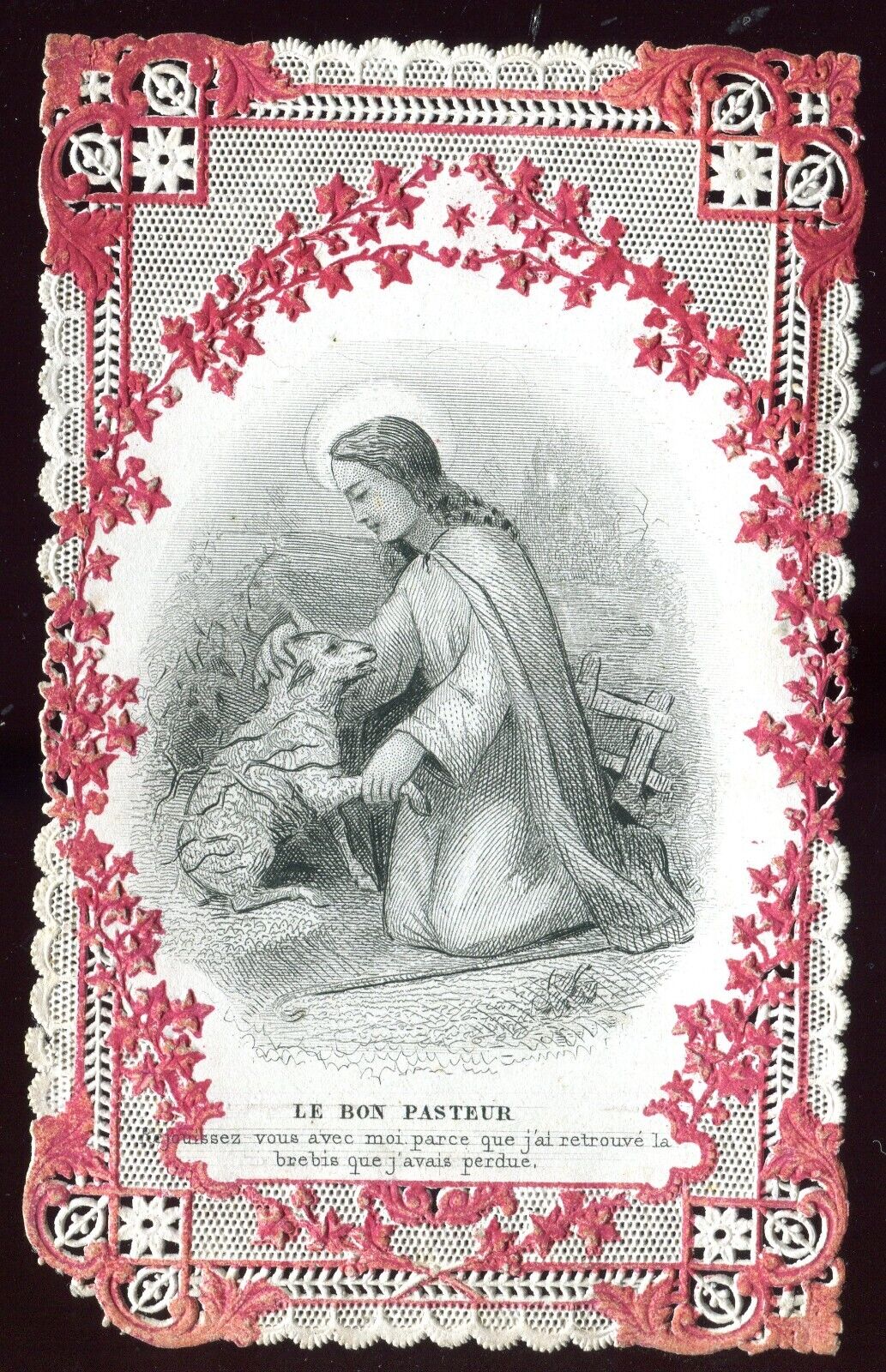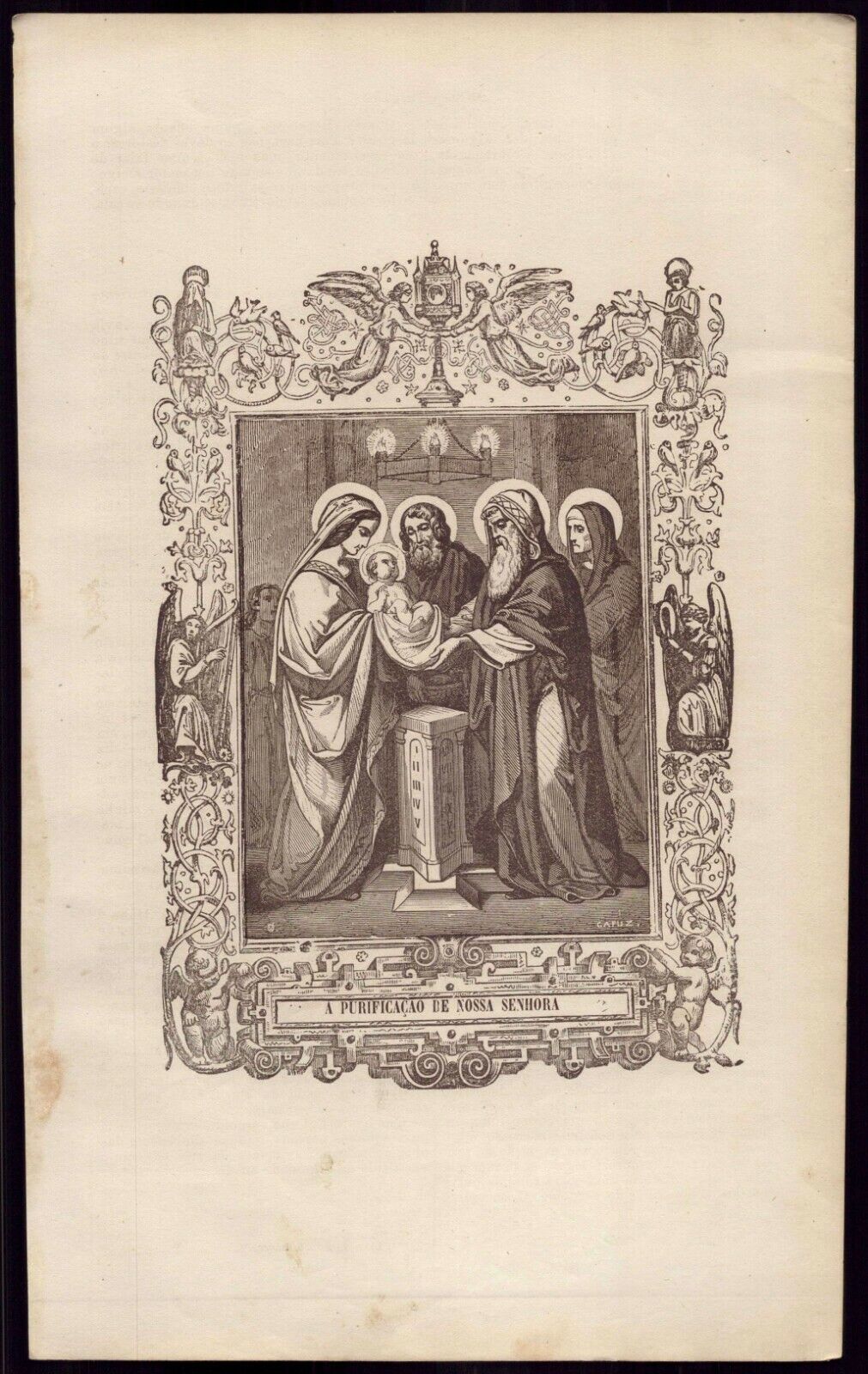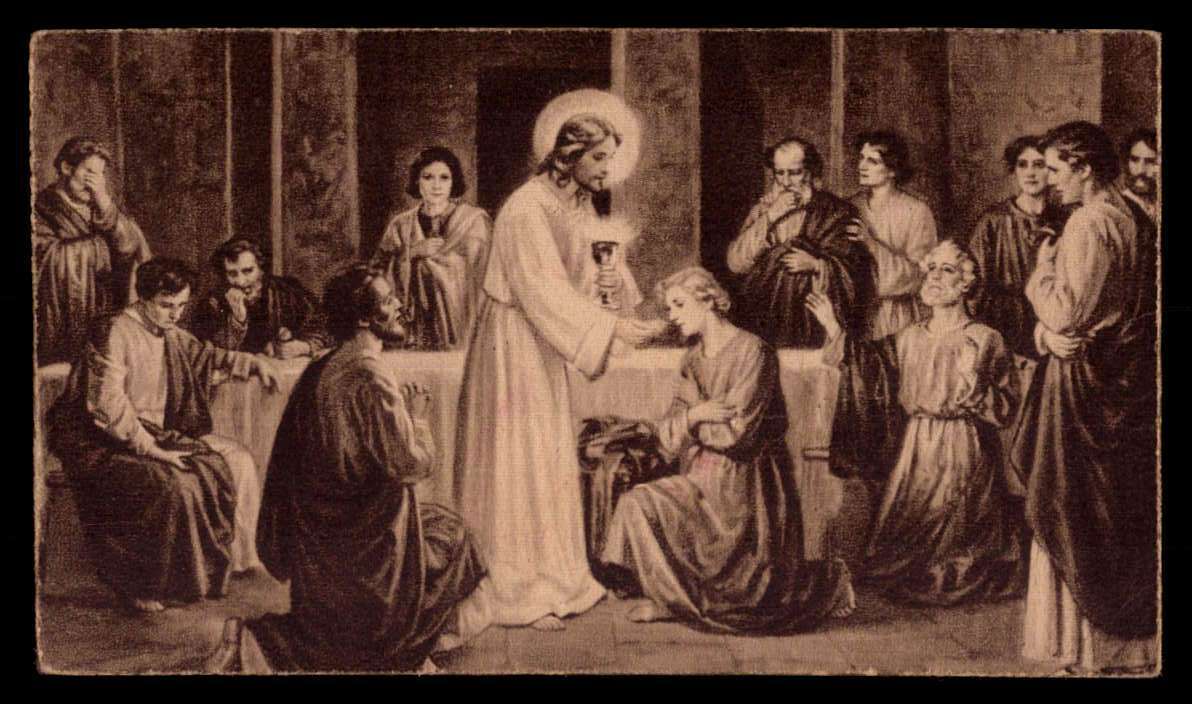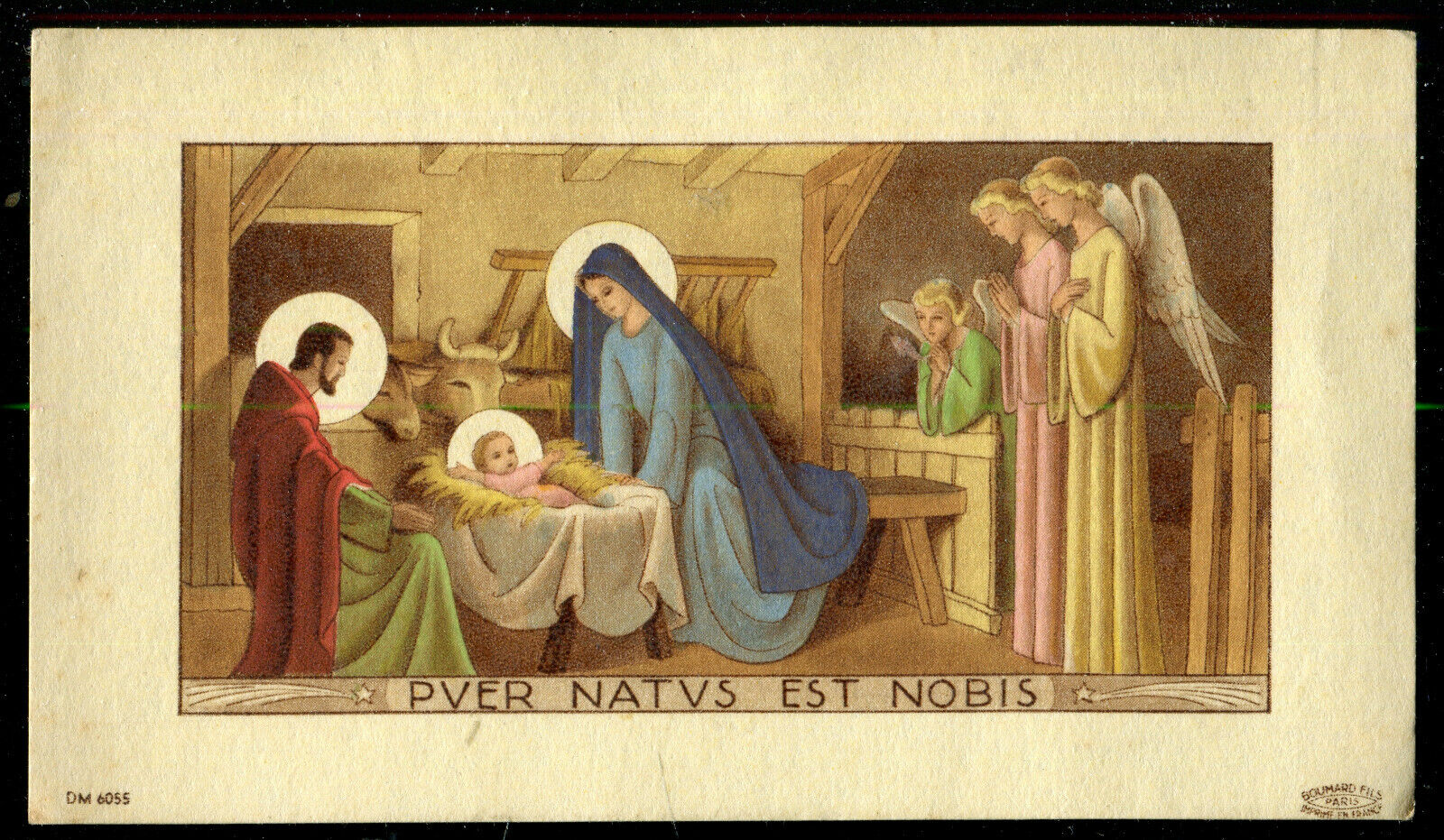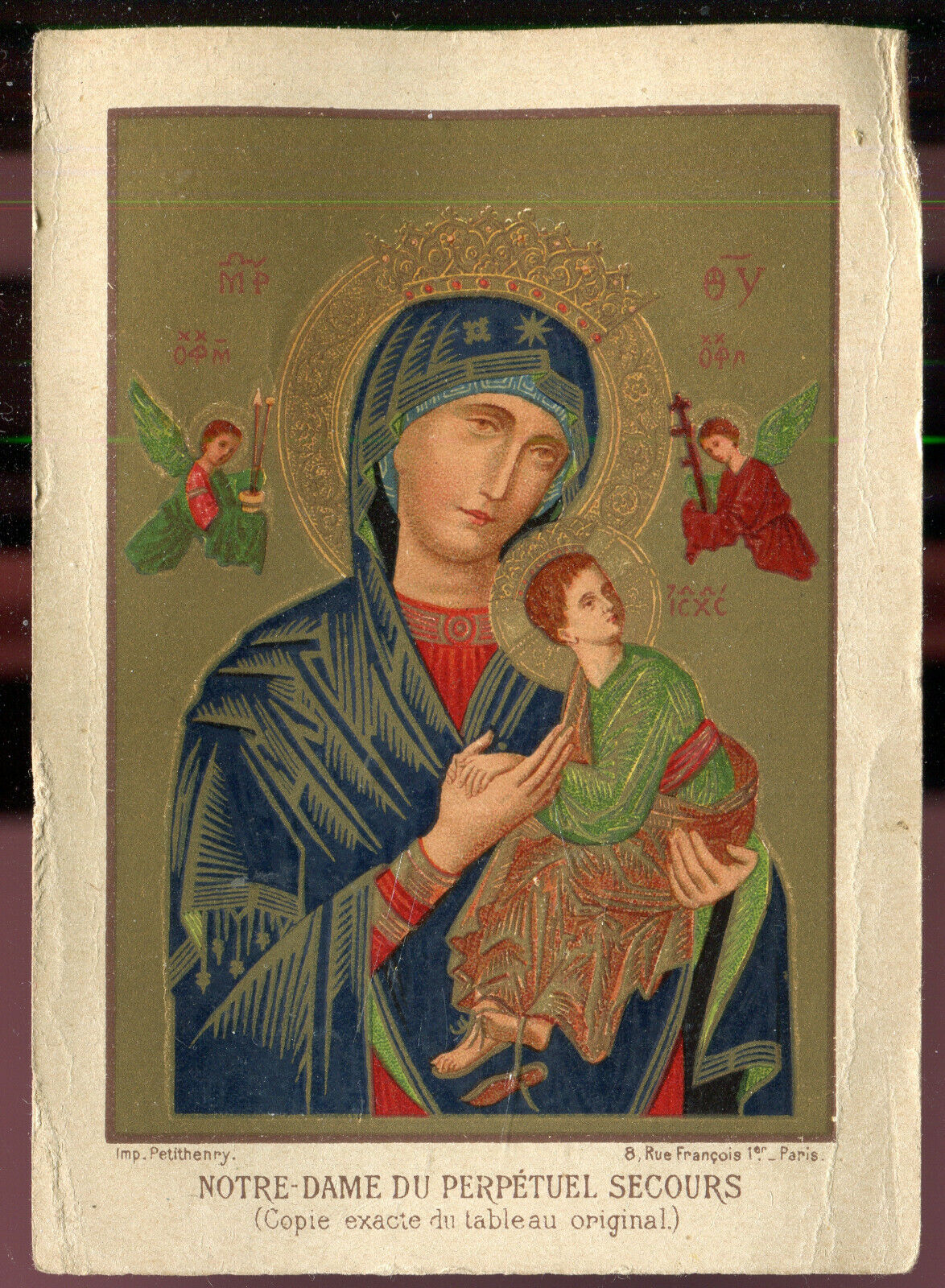-40%
Holy Card of Saint Dismas the Good Thief & a 1" Silver Oxidized Medal of Dismas
$ 2.5
- Description
- Size Guide
Description
Laminated Holy Card (5" X 2.75") of Saint Dismas the Good Thief & a 1" Silver Oxidized Medal of DismasThis exceptionally detailed die-cast medal, with St Dismas the Good Thief on the front and PRAY FOR US on the back, is made in the region of Italy that produces the finest quality medals in the world. The silver oxidized finish is has been perfected for hundreds of years by the local Italian craftsmen, and remains unmatched in quality, beauty, and longevity throughout the world -a genuine silver plating with a 3-dimensional depth, and long-lasting brilliance. Measures approximately 1 inch in height - attached jump ring is included.
The Penitent Thief, also known as the Good Thief, Wise Thief, Grateful Thief or the Thief on the Cross, is one of two unnamed thieves in Luke's account of the crucifixion of Jesus in the New Testament. The Gospel of Luke describes him asking Jesus to "remember him" when Jesus arrives at his kingdom. The other, as the impenitent thief, challenges Jesus to save himself and both of them to prove that he is the Messiah.
He is officially venerated in the Catholic Church. The Roman Martyrology places his commemoration on 25 March, together with the Feast of the Annunciation, because of the ancient Christian tradition that Christ (and the penitent thief) were crucified and died exactly on the anniversary of Christ's incarnation.
He is given the name Dismas in the Gospel of Nicodemus and is traditionally known in Catholicism as Saint Dismas (sometimes Dysmas; in Spanish and Portuguese, Dimas). Other traditions have bestowed other names:
In Coptic Orthodox tradition and the Narrative of Joseph of Arimathea, he is named Demas.
In the Codex Colbertinus, he is named Zoatham or Zoathan.
In Russian Orthodox tradition, he is named Rakh.
Two men were crucified at the same time as Jesus, one on his right and one on his left (Matthew 27:38, Mark 15:27–28,32, Luke 23:33, John 19:18), which the Gospel of Mark interprets as fulfillment of the prophecy of Isaiah 53:12. According to the Gospels of Matthew and Mark, respectively, both of the thieves mocked Jesus (Matthew 27:44, Mark 15:32); Luke, however, mentions that:
39 Now one of the criminals hanging there reviled Jesus, saying, "Are you not the Messiah? Save yourself and us."
40 The other, however, rebuking him, said in reply, "Have you no fear of God, for you are subject to the same condemnation? 41 And indeed, we have been condemned justly, for the sentence we received corresponds to our crimes, but this man has done nothing criminal." 42 Then he said, "Jesus, remember me when you come into your kingdom."
43 He replied to him, "Amen I say to you today you will be with me in Paradise." 23:39–43
The phrase translated "Amen I say to you today you will be in paradise" in Luke 23:43 ("Ἀμήν σοι λέγω σήμερον μετ’ ἐμοῦ ἔσῃ ἐν τῷ παραδείσῳ." Amén soi légo sémemeron met' emoû ése en tôi paradeísoi) is disputed in a minority of versions and commentaries. The Greek manuscripts are without punctuation, so attribution of the adverb "today" to the verb "be", as "Amen I say to you, today you will be with me in paradise" (the majority view), or the verb "say", as "Amen I say to you today, you will be with me in paradise" (the minority view), is dependent on analysis of word order conventions in Koine Greek. The majority of ancient Bible translations also follow the majority view, with only the Aramaic language Curetonian Gospels offering significant testimony to the minority view. As a result, some prayers recognize the good thief as the only person confirmed as a saint—that is, a person known to be in Paradise after death—by the Bible, and by Jesus himself. Thomas Aquinas wrote:
The words of The Lord (This day ... in paradise) must therefore be understood not of an earthly or corporeal paradise, but of that spiritual paradise in which all may be, said to be, who are in the enjoyment of the divine glory. Hence to place, the thief went up with Christ to heaven, that he might be with Christ, as it was said to him: "Thou shalt be with Me in Paradise"; but as to reward, he was in Paradise, for he there tasted and enjoyed the divinity of Christ, together with the other saints.
Only the Gospel of Luke describes one of the criminals as penitent, and that gospel does not name him.
Augustine of Hippo does not name the thief, but wonders if he might not have been baptized at some point.
According to tradition,[citation needed] the Good Thief was crucified to Jesus' right and the other thief was crucified to his left. For this reason, depictions of the crucifixion of Jesus often show Jesus' head inclined to his right, showing his acceptance of the Good Thief. In the Russian Orthodox Church, both crucifixes and crosses are usually made with three bars: the top one, representing the titulus (the inscription that Pontius Pilate wrote and was nailed above Jesus' head); the longer crossbar on which Jesus' hands were nailed; and a slanted bar at the bottom representing the footrest to which Jesus' feet were nailed. The footrest is slanted, pointing up towards the Good Thief, and pointing down towards the other.
According to John Chrysostom, the thief dwelt in the desert and robbed or murdered anyone unlucky enough to cross his path. According to Pope Gregory I, he "was guilty of blood, even his brother's blood" (fratricide).
Luke's unnamed penitent thief was later assigned the name Dismas in an early Greek recension of the Acta Pilati and the Latin Gospel of Nicodemus, portions of which may be dated to the late fourth century. The name "Dismas" may have been adapted from a Greek word meaning "sunset" or "death". The other thief's name is given as Gestas. In Syriac Infancy Gospel's Life of the Good Thief (Histoire Du Bon Larron French 1868, English 1882), Augustine of Hippo said, the thief said to Jesus, the child: "O most blessed of children, if ever a time should come when I shall crave Thy Mercy, remember me and forget not what has passed this day."
The Catholic Church remembers the Good Thief on 25 March. In the Roman Martyrology, the following entry is given: "Commemoration of the holy thief in Jerusalem who confessed to Christ and canonized him by Jesus himself
on the cross at that moment and merited to hear from him: 'Today you will be with me in Paradise.'" A number of towns, including San Dimas, California, are named after him. Also, parish churches are named after him, such as the Church of the Good Thief in Kingston, Ontario, Canada—built by convicts at nearby Kingston Penitentiary, Saint Dismas Church in Waukegan, Illinois, the Old Catholic Parish of St Dismas in Coseley and the Church of St. Dismas, the Good Thief, a Catholic church at the Clinton Correctional Facility in Dannemora, New York.
The Eastern Orthodox Church remembers him on Good Friday, along with the crucifixion. The Synaxarion offers this couplet in his honor:
Eden's locked gates the Thief has opened wide,
By putting in the key, "Remember me."
He is commemorated in a traditional Eastern Orthodox prayer said before receiving the Eucharist: "I will not speak of Thy Mystery to Thine enemies, neither like Judas will I give Thee a kiss; but like the thief will I confess Thee: Remember me, O Lord in Thy Kingdom."




